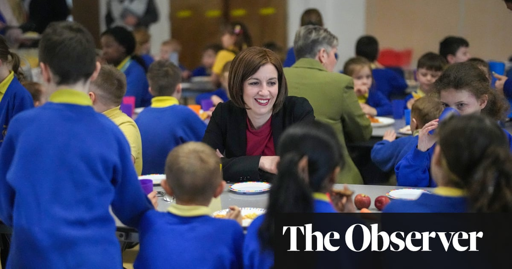Education Secretary Bridget Phillipson sees the provision of free breakfast clubs in all primary schools as vital to breaking what she calls the “unfair link between background and success” in education. Numerous academic studies show that a good breakfast improves attendance and pupil performance.
But with the chancellor, Rachel Reeves, considering further spending cuts for major departments, concerns are growing among headteachers, unions and charities that the plans will not be properly funded and will lack the flexibility required to be successful.
This weekend, the independent publication Schools Week highlighted how some headteachers in primaries, while enthusiastic about the overall aims, were refusing to take part in an “early adopter” pilot scheme for 750 volunteer schools because only 60p was being provided by the government per pupil.
[…]
Guidance sent to schools taking part in the pilots say they will receive a £500 set-up payment to cover equipment and materials as well as £1,099 for “start-up staffing costs” to cover the summer term. A payment will then be made in arrears, based on the number of pupils taking part.Lindsey MacDonald, CEO of the charity Magic Breakfast, which has more than 20 years of experience in the field and provides breakfasts to more than 300,000 children and young people every day, said ministers must allow schools to offer a variety of ways to feed pupils, rather than just in formal “breakfast clubs” set up in one hall or building, before the normal school day. This is by far the most expensive model as it requires extra staff to be employed out of normal hours, and does not maximise the chances of all pupils being fed.



thats two whole freddos
Freddos should still be 10p, like the good old days.